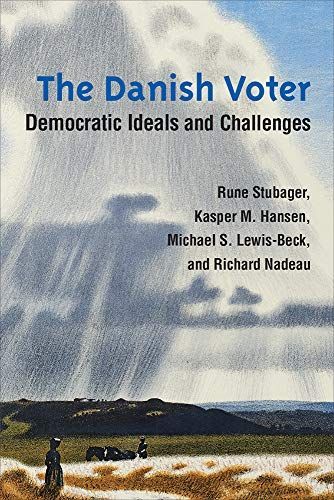
The Danish Voter Democratic Ideals and Challenges
To many international experts, politicians, and commentators, Denmark stands out as an ideal society with a well-functioning welfare state, low levels of corruption, and a high degree of social and political stability. Like other countries, however, Denmark faces challenges brought on by overall social changes. Particularly the challenges of maintaining a prosperous economy and the growing number of immigrants from different ethnic and religious backgrounds have left their mark on Danish society over the past 50 years. But how have Danish voters reacted to these challenges? In order to understand the foundation of the Danish ideal, the authors analyze voter behavior from the early 1970s until 2019. The Danish Voter investigates a series of interesting questions concerning voters' reactions to the two macrosocial challenges--and how these reactions impact the foundations for the ideal. The individual chapters consider how the challenges have weakened the traditional class cleavage while giving rise to new divisions based on gender and education. They also show how electoral polarization on economic redistribution has remained strong even in spite of depolarization in the parties' positions on this dimension. On cultural issues like immigration, however, the challenge of diversity has resulted in a dramatic increase in polarization among both parties and voters. By investigating the drivers of political trust, the authors show how voters respond to enacted policies. The Danish Voter holds important insights for readers interested in the politics of Western Europe where countries face similar challenges. Indeed, due to an electoral system open to new influences, the Danish case is an important test case for theories about political development of contemporary Western societies.